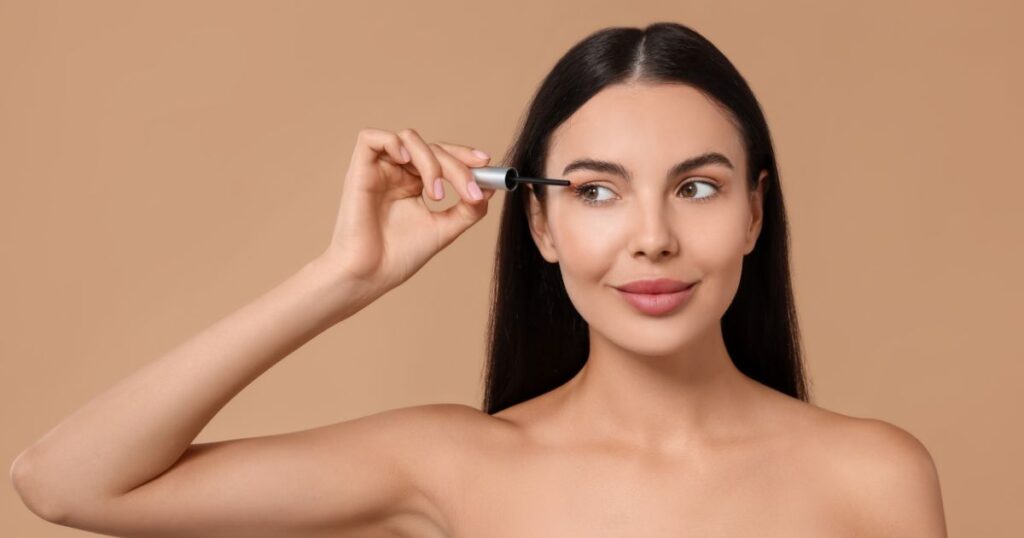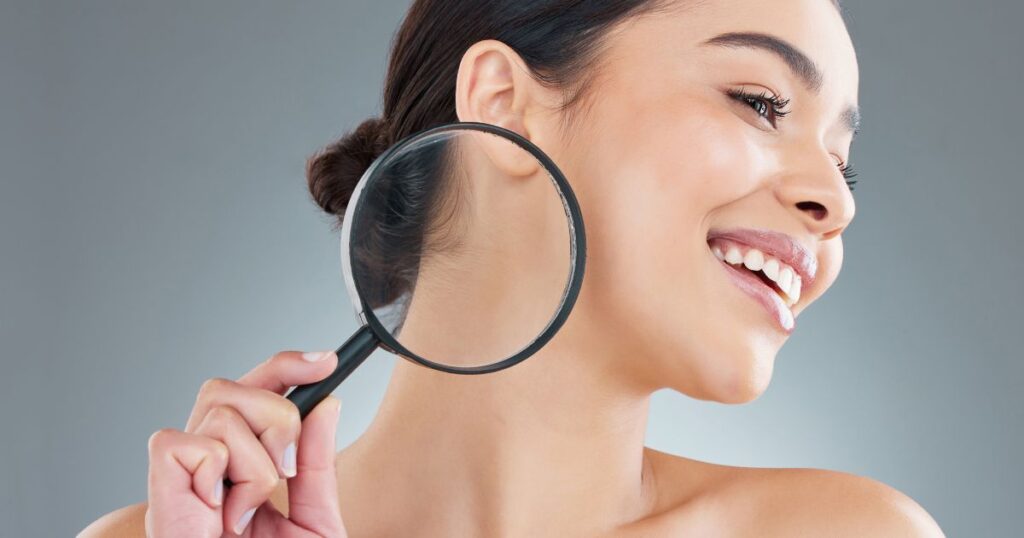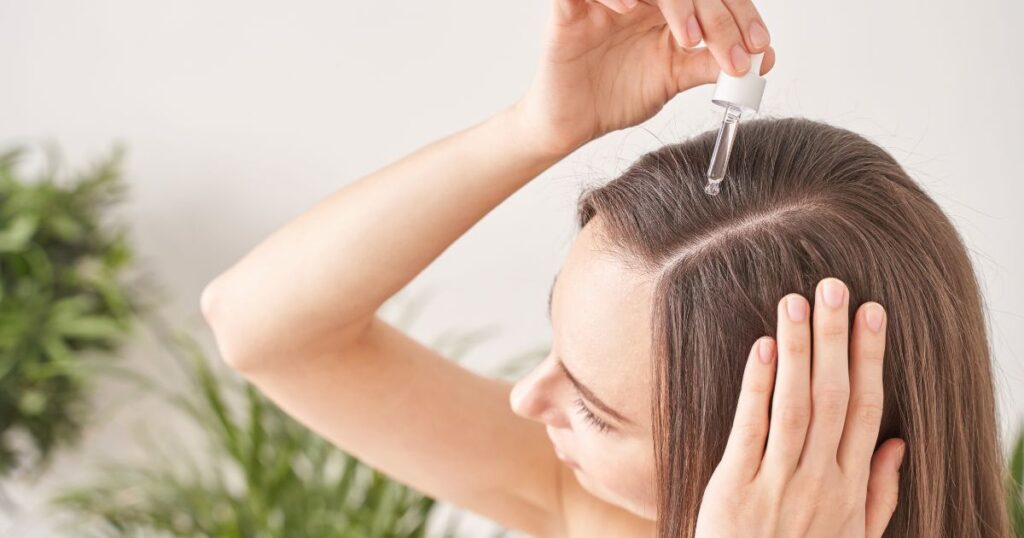Argan oil, often celebrated as “liquid gold,” has firmly established itself as a vital element in clean beauty. This luxurious natural oil, derived from the kernels of Argan trees native to Morocco, blends ancient beauty secrets with modern principles of sustainability and wellness.
A Brief History:
- Traditional Use: In Morocco, Argan oil has been used for centuries to combat the effects of the desert climate on skin and hair.
- Global Recognition: Its myriad benefits have catapulted it to global fame, making it a beloved ingredient in the clean beauty industry.
Defining Clean Beauty:
- Safety: Clean beauty products are formulated without harmful chemicals, prioritizing consumer health.
- Sustainability: They emphasize the use of sustainable and ethically sourced ingredients.
- Ethics: Clean beauty supports fair trade and responsible sourcing practices.
Why Choose Argan Oil?:
- Nutrient-Rich: Packed with fatty acids, antioxidants, and vitamin E, pure Argan oil nourishes and rejuvenates dry skin and dry hair.
- Eco-Friendly: Its production promotes environmental sustainability and supports local communities in Morocco.
- Versatility: Suitable for a variety of beauty applications, from promoting healthy skin to strengthening hair.
Table of Contents - Click to Go
Can Argan Oil Help You Grow Lashes or Hair?

Argan oil is full of nutrients essential for healthy hair and lashes. Its unique composition, rich in essential fatty acids, antioxidants, and Vitamin E, plays a crucial role in hair care. Here’s how these components contribute to hair and lash health:
- Essential Fatty Acids: These are pivotal for strong hair follicles and improve hair’s elasticity and shine.
- Antioxidants: Protect hair from environmental damage, reducing breakage and promoting hair longevity.
- Vitamin E: Known for its reparative properties, Vitamin E helps repair hair damage and maintain healthy hair growth.
Research and Anecdotal Evidence
Studies and personal testimonials often highlight the effectiveness of Argan oil in nurturing hair and promoting growth.
- Moisturizing Properties: Keeps the scalp healthy and prevents dryness which can lead to hair loss.
- Improvement in Hair Texture: Users report softer, silkier, and more manageable hair when they add argan oil to their haircare routine.
- Lash Enhancement: Anecdotal evidence suggests that regular application of Argan oil can result in thicker, longer lashes.
Incorporating Argan Oil into Your Routine
To harness the full potential of Argan oil for hair and lash care, consider the following tips:
- Scalp Massage: Regularly massage Argan oil into your scalp to stimulate hair growth.
- DIY Hair Masks: Mix Argan oil with other natural ingredients like coconut oil or honey for a nourishing hair treatment.
- Lash Application: Use a clean mascara brush to apply Argan oil to your lashes at night to promote thickness.
DIY Recipe for Hair Growth
Here’s a simple recipe to kickstart your hair growth journey:
- Ingredients:
- 2 tablespoons of Argan oil
- 1 tablespoon of castor oil
- 5 drops of rosemary essential oil
- Instructions:
- Add argan oil with castor oil and warm slightly.
- Apply to the scalp and hair, massaging gently.
- Leave on for at least an hour or overnight for deep conditioning.
- Wash off using a gentle shampoo.
Incorporating Argan oil for hair into your clean beauty regimen is straightforward and can yield visible benefits, not just for your hair’s appearance but also for its overall health.
Is Pure Argan Oil a Clean Beauty Product?

Argan oil epitomizes the essence of clean beauty through its natural, sustainable, and ethically produced characteristics. Here’s how it aligns with the core principles of clean beauty:
Clean Beauty Standards
Clean beauty revolves around products that are safe for our bodies and the environment. It emphasizes:
- Ingredient Purity: Free from harmful chemicals and synthetics.
- Ethical Sourcing: Ingredients are obtained in ways that do not harm the environment or exploit workers.
- Environmental Sustainability: Production practices that minimize environmental impact.
Argan Oil’s Production Process
The journey of Argan oil from tree to bottle is a testament to clean beauty:
- Natural Harvesting: Pure argan oil is derived from the nuts of the Argan tree, which grows almost exclusively in Morocco. The process is largely manual, ensuring minimal environmental impact.
- Community Impact: The production of Argan oil is crucial to local communities, providing income and employment opportunities, especially for women in cooperative settings.
- Organic Certification: Many Argan oil products, especially culinary argan oil, are certified organic, affirming their purity and the absence of chemical additives.
Meeting Clean Beauty Criteria
Argan oil’s compliance with clean beauty standards is further affirmed by:
- Certifications: Look for labels like USDA Organic or ECOCERT, which guarantee that the oil meets stringent organic and clean beauty standards.
- Transparent Labeling: Ethical brands provide clear information about the sourcing and production processes.
By choosing Argan oil, consumers support not only their own health and beauty but also the principles of sustainability and ethical practices that define clean beauty.
Is Argan Oil Good for Your Skin?

Argan oil is useful not only for its versatility but also for its profound benefits for skin health. Its unique composition makes it an excellent choice for anyone looking to enhance their skin’s natural beauty.
Skin Benefits
Argan oil is rich in essential nutrients that are beneficial for the skin:
- Fatty Acids: Omega-6 and omega-9 fatty acids in Argan oil help maintain the skin’s barrier function and retain moisture.
- Vitamin E: A powerful antioxidant that helps protect the skin from damage caused by free radicals and UV exposure.
- Anti-inflammatory Properties: Argan oil has natural anti-inflammatory agents that can help reduce redness and soothe skin irritations.
Real-Life Effectiveness
The benefits of Argan oil for the skin are supported by both scientific studies and personal testimonies:
- Hydration: Its emollient properties make Argan oil great for moisturizing, leaving dry skin soft and plump.
- Anti-Aging Effects: Regular use of Argan oil can help reduce the visibility of wrinkles and fine lines by restoring elasticity and increasing skin firmness.
- Acne and Scar Treatment: Thanks to its non-greasy nature, it helps balance out oily skin and can aid in healing acne scars and other skin blemishes.
Incorporating Argan Oil into Your Skincare Routine
Adding Argan oil to your skincare regimen is straightforward and beneficial:
- As a Moisturizer: Apply a few drops on your face as part of your morning or nighttime routine.
- For Acne or Scar Treatment: Use it as a spot treatment, applying a small amount directly to affected areas.
- Anti-Aging Serum: Mix it with other anti-aging oils like rosehip or jojoba oil for enhanced effects.
Argan oil’s versatility also extends to being suitable for all skin types, from dry to oily, making it a universal addition to your beauty arsenal. By fitting seamlessly into various skincare applications, Argan oil offers a holistic approach to maintaining healthy, radiant skin.
Comedogenic Rating of Argan Oil
- Low Comedogenicity: Argan oil has a relatively low comedogenic rating, which means it is less likely to clog pores compared to other oils. This property makes it suitable for most skin types, including those with oily skin and those prone to acne.
Correct Usage to Prevent Acne
Proper application and dosage are key to avoiding any negative reactions:
- Quantity: Use only a few drops. Applying too much can overwhelm the skin, regardless of the oil’s low comedogenic nature.
- Frequency: Start by using it a few times a week and observe how your skin responds before increasing usage.
- Application Technique: Warm the oil in your hands and pat it onto your face, rather than rubbing it in, which can irritate the skin.
Patch Testing
Before fully integrating Argan oil into your skincare routine, conducting a patch test is essential:
- Apply a small amount: Choose a small area on your skin, such as the inside of your elbow or behind the ear.
- Wait 24-48 hours: Monitor the area for any adverse reactions like redness, itching, or breakout.
Monitoring Skin Response
After incorporating Argan oil, keep an eye on your skin’s response:
- Positive Signs: Look for improvements in skin hydration and texture.
- Adverse Reactions: If breakouts occur, reconsider the frequency or concentration of Argan oil in your routine.
By understanding and adhering to the right usage practices, most individuals can enjoy the benefits of Argan oil without the fear of it causing acne. Its natural, non-greasy qualities make it a valuable addition to a balanced skincare regimen.
Can Argan Oil Go Bad?
Like any natural product, pure argan oil does have a shelf life and can go bad if not stored properly. Understanding how to maintain its quality is key to maximizing its benefits.
Shelf Life and Storage
Argan oil typically lasts between 18 to 24 months when stored correctly. Factors that affect its longevity include:
- Storage Conditions: Keep Argan oil in a cool, dark place away from direct sunlight.
- Packaging: Dark glass bottles are preferable as they protect the oil from light, preserving its properties.
- Keep it Sealed: Always tighten the cap after use to prevent oxidation.
- Avoid Contamination: Use clean utensils or droppers to avoid introducing bacteria to the oil.
Signs of Spoilage
It’s important to recognize when Argan oil has gone bad to avoid skin irritations or reduced effectiveness:
- Change in Smell: Fresh Argan oil has a light, nutty aroma. A sour or unpleasant smell indicates spoilage.
- Texture Changes: If the oil feels sticky or unusually thick, it may have deteriorated.
- Color Shifts: While natural variations exist, any drastic change in color could suggest the oil is past its prime.
Impact of Using Spoiled Oil
Using rancid Argan oil can diminish its beauty benefits and potentially harm your skin or hair:
- Reduced Effectiveness: Spoiled oil may not provide the intended hydration or nourishment.
- Skin Irritation: Rancid oils can cause skin irritation or exacerbate existing skin conditions.
Adhering to proper storage techniques ensures that you get the most out of your Argan oil, keeping it fresh and effective for as long as possible.
Experience Hair and Skin Hydration With Argan Oil

Argan oil, with its rich history and remarkable versatility, stands as a testament to the power of natural ingredients in the realm of clean beauty. Embracing Argan oil is more than just adding a product to your beauty regimen; it’s about supporting a sustainable, ethical approach to beauty that respects both the environment and human welfare.
Whether used for hydrating skin, enhancing hair growth, or protecting lashes, Argan oil delivers with exceptional efficacy. It epitomizes the ideals of clean beauty, emphasizing non-toxic, sustainable, and ethically sourced ingredients.
As you integrate Argan oil into your daily routine, you contribute to a cycle of beauty that promotes health, sustainability, and ethical consumerism. The ongoing popularity of Argan oil in the clean beauty market underscores its effectiveness and the growing consumer awareness towards products that are good for both people and the planet.

